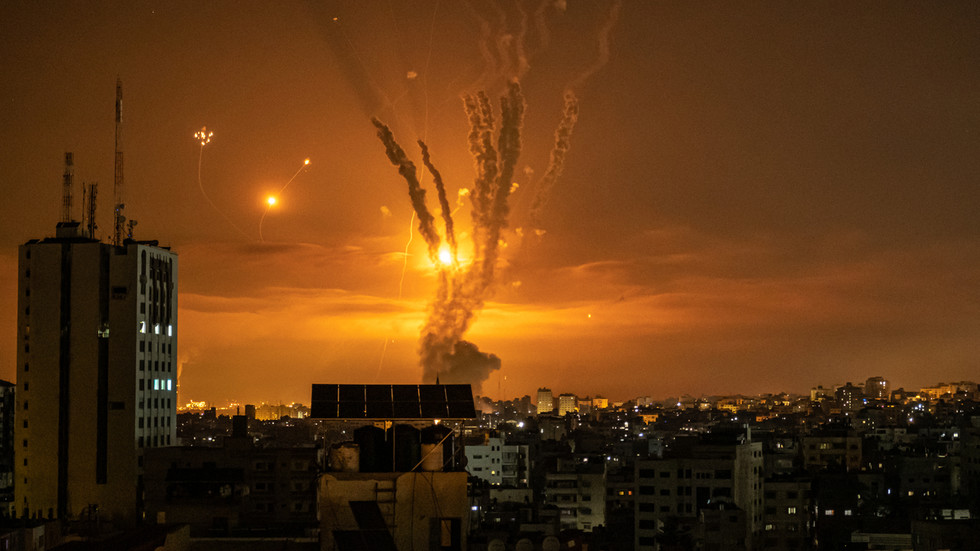The ongoing conflict in the Middle East, particularly following the Palestinian attacks on Israel on October 7, 2022, has invoked dire humanitarian and economic consequences, not only locally but across the globe. The conflict has escalated dramatically, drawing in neighboring nations such as Iran, which has engaged in military actions against Israel, consequently worsening the already tenuous humanitarian situation. Despite numerous attempts from the international community to mediate the conflict, efforts toward achieving a peaceful resolution have so far been unsuccessful. Given the region’s strategic oil resources, the escalation of violence threatens not just Israel and Palestine but also raises concerns over global energy prices, potentially impacting economies worldwide. Analysts have warned that if the situation devolves into a direct confrontation between Israel and Iran, it could lead to economic disruptions that might push oil prices upwards of $150 per barrel, driving inflation and recession fears in the global market.
Israel’s economy is grappling with one of its most challenging downturns amid declining GDP growth rates and escalating inflation. The country’s economic slowdown has become pronounced due to ongoing strikes and dissatisfaction within the populace regarding the government’s handling of the war. Prior to the conflict, Israel experienced robust economic growth, largely propelled by its technological sector. However, projections show that the GDP growth for the second quarter of 2024 fell dramatically, with a mere 1.2% increase year-over-year. This decline has been exacerbated by significant reductions in exports and a shrinking business production sector, which dropped by 1.9%. Furthermore, while private consumption saw a surprising increase of 12%, it has not effectively offset losses elsewhere, raising concerns about overall economic stability, particularly with associated risks such as a lack of personnel and growing business closures.
In light of these developments, Israel is facing hard choices regarding its fiscal policies. The potential need to trim budget allocations in critical sectors or increase national debt could further destabilize economic conditions. The country has already seen its credit rating lowered due to escalating military expenditures and a rapidly growing budget deficit. This reduction jeopardizes Israel’s ability to sustain its military operations while managing the broader economic impacts of the conflict. Meanwhile, in Gaza, economic activity has effectively come to a standstill, with many residents relying on humanitarian aid amid devastating losses in infrastructure and communicative channels due to ongoing violence. Hence, the conflict is spurring concerns over not just local economies but also the broader Middle Eastern economic landscape, with the International Monetary Fund anticipating only modest regional growth due to continued geopolitical strife.
Supply chain stability and international energy prices are becoming increasingly precarious, especially concerning Iran’s oil industry, a significant player in the global market. An Israeli military action targeting Iranian oil infrastructure could lead to severe disruptions, with potential ramifications for global oil supply as Iran produces a vast amount of oil currently exported mainly to China. If notable supply disruptions occur due to strikes or blockades, oil prices could quickly surge and throw energy markets into chaos, impacting economies that depend heavily on stable energy prices. Furthermore, the potential closure of the Strait of Hormuz, through which a substantial portion of the world’s oil travels, would intensify existing vulnerabilities and elevate prices across the board, extending from oil to gas and other energy markets.
The strategic implications of escalating hostilities also extend beyond oil to the natural gas sector. Iran is a key player in the natural gas supply chain, not only for local consumption but also for exports to neighboring countries. Disruptions arising from conflict could amplify the instability of natural gas deliveries, especially as European markets search for alternatives following their previous reliance on Russian exports. Increased volatility and potential supply shortages could lead to significant price hikes, particularly in regions already facing challenges in energy supply. Given that the energy crises could reach a critical point during peak demand months, particularly in Europe during winter, the global economy could experience heightened inflationary pressures and general instability.
As tensions continue to mount, economic forecasts suggest that rising energy costs will reverberate through consumer markets, and industries reliant on energy will face increased operational costs. In turn, this energy crisis could lead to intensified inflation across various sectors, requiring coordinated international response efforts to manage and stabilize the global economy effectively. Existing inflationary pressures, which already reached 6.6% globally in 2023, could worsen even as inflation becomes a concern for economies already under strain from energy prices. The interplay of these geopolitical tensions and economic realities calls for vigilance and proactive measures from the global community, to potentially avert a deeper economic crisis as conflicts in the Middle East jeopardize stability in broader international markets.

